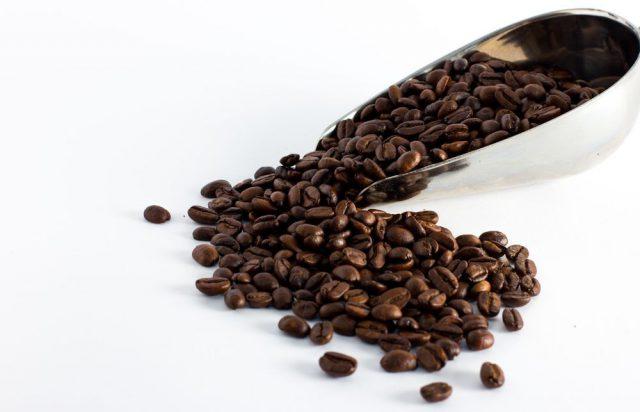The benefits and harms of decaf coffee – is it that good?
 So, you have a desire to reduce your daily coffee consumption. Whatever the reason (even if it’s a very compelling one), be smart about it. After all, we do drink a lot of coffee. Breaking a habit is tricky, however, and there are countless health benefits to every counterargument.
So, you have a desire to reduce your daily coffee consumption. Whatever the reason (even if it’s a very compelling one), be smart about it. After all, we do drink a lot of coffee. Breaking a habit is tricky, however, and there are countless health benefits to every counterargument.
By the way, what about dickef?
The content of the article:
What is decaf coffee?
Dykef, or decaffeinated coffee, is the very drink that does not excite you and does not provoke insomnia.
Special processing of beans – it removes about 97% of the caffeine… That is, on average, dikef contains 3 mg of caffeine per cup, compared to 85 mg in a regular cup of coffee – which is definitely noticeable if you are sensitive to caffeine.
How it’s done?
The story goes that caffeine-free coffee is pure coincidence.
It was “mined” in the early 20th century when a batch of coffee beans was soaked in sea water during transport, which naturally deprived them of caffeine. Soon after, the owner of the cargo decided to take advantage of the opportunity – and advertised “healthy coffee.” Although he is said to have treated the grain with benzene, this is already a marketing gimmick for better sales.
Good news: decaf coffee is much safer today and is no longer carcinogenic (no benzene). However, the chemicals have not completely disappeared.

The decaffeinating process begins with unroasted beans, which are first soaked in water to dissolve the caffeine.
This is followed by three processing options:
- First, they are all the same terrible chemicals… Methylene chloride, which is used in paint removers, and ethyl acetate, used in glue and nail polish removers, are used to remove caffeine from water. The chemicals are either added to the coffee and water mixture (“direct” process) or used in the process of removing water from the beans (“indirect” process).
- Another method called Swiss Water Process Is essentially a carbon filter to remove caffeine, which looks more gentle as it does not contain any chemicals.
- The third method is use of liquid carbon dioxide to dissolve caffeine.
While the latter two options may seem preferable, the amount of chemicals remaining at the end of the first method is minimal, so it is the first method that is considered the safest…
Regardless of your preference, it’s hard to tell what you’re buying under the name “Dickef” unless you choose a 100% organic product that does not contain solvents.

So is decaf coffee good for you?
Decaffeinated coffee, like regular coffee, still contains a lot of antioxidants. And, although there may be a little less of these antioxidants in dikef, all the coffee pluses remain in it.
Coffee can help prevent cancer and even type 2 diabetes, regardless of the presence of caffeine itself.
But that’s not all.
Decaffeinated coffee has many other benefits, some of which are due to its very low caffeine content:
- Several studies show that consumption of decaffeinated coffee is associated with a lower risk of rectal cancer.
- A study in rats (so far in rats) showed that rodents fed dicef did better on cognitive tasks. From this it follows that such coffee can fight aging changes in the brain.
- Drinking coffee – both decaffeinated and caffeinated – protects brain neurons and may help prevent diseases like Alzheimer’s and Parkinson’s.
- Dykaf even fights inflammation and depression.

But is dickef really better?
Regular coffee certainly has a long list of health benefits, but that doesn’t mean it’s definitely healthier. Since caffeinated coffee has been studied in more detail, we know a lot more about it – hence all these benefits.
But there is another key factor: what to do with people who are caffeine intolerant? Many of them suffer from symptoms such as acid reflux, heartburn, and stomach discomfort even after one cup of coffee. Not the most pleasant way to start the day, you must agree! But, since the decaffeinating process can make the coffee softer, the dicef will reduce these symptoms.
Caffeine is also “responsible” for other side effects such as anxiety, insomnia, high blood pressure, and feeling tired…
By the way, yes, caffeine is a drug… And while it is not highly addictive, consuming it regularly can still lead to an over-love of coffee and withdrawal symptoms.
Caffeine can also interact poorly with certain medications. Hence, dikef is a much safer choice.
However, do not forget to consult your doctor about all your concerns!
Logical conclusion
Consuming coffee wisely depends on you and your body’s response to caffeine. If you do not suffer from side effects, then relax – and continue drinking regular coffee.

Just try not to go beyond consumption up to 400 mg per day (3-4 cups, of course, depending on strength).
If you prefer something more gentle and soft – both in taste and sensation – then choose dikef. Desirable – as organic as possible.
What to give a friend?
Gift Certificate! You can give it to your loved one or use it yourself.
And we also give away a certificate for 3000 rubles every month. among new email subscribers. Subscribe!
Select a certificate in the store
Visit Bologny for more useful and informative articles!




